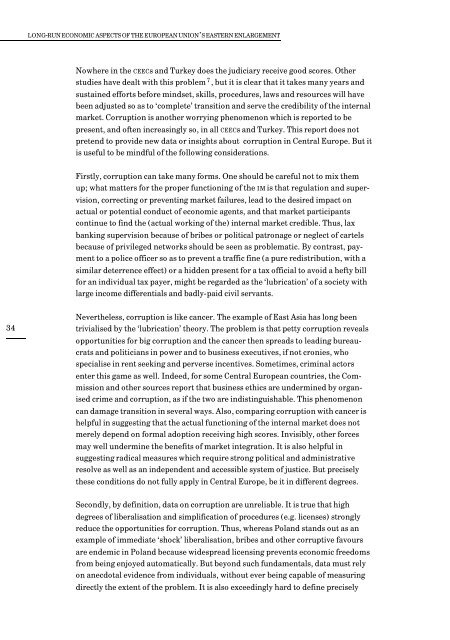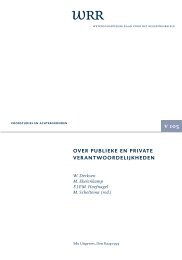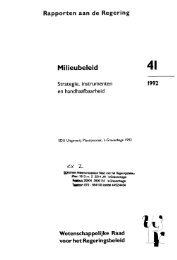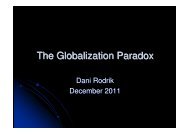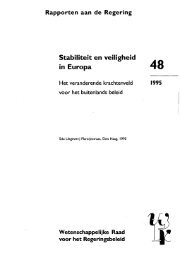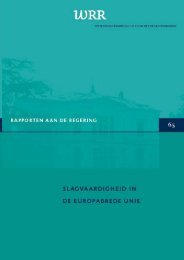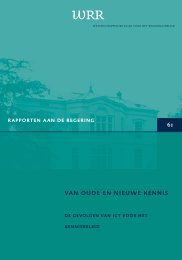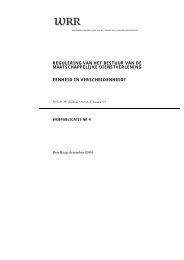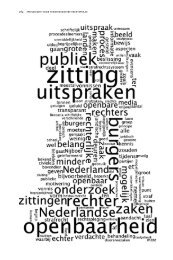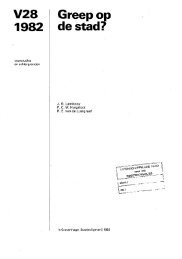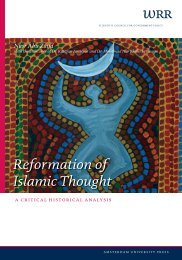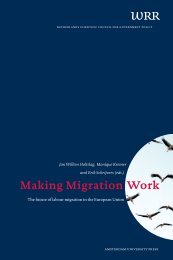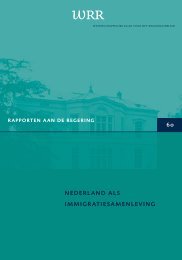w 109 long-run economic aspects of the european union's eastern ...
w 109 long-run economic aspects of the european union's eastern ...
w 109 long-run economic aspects of the european union's eastern ...
You also want an ePaper? Increase the reach of your titles
YUMPU automatically turns print PDFs into web optimized ePapers that Google loves.
LONG-RUN ECONOMIC ASPECTS OF THE EUROPEAN UNION’S EASTERN ENLARGEMENTNowhere in <strong>the</strong> CEECs and Turkey does <strong>the</strong> judiciary receive good scores. O<strong>the</strong>rstudies have dealt with this problem 7 , but it is clear that it takes many years andsustained efforts before mindset, skills, procedures, laws and resources will havebeen adjusted so as to ‘complete’ transition and serve <strong>the</strong> credibility <strong>of</strong> <strong>the</strong> internalmarket. Corruption is ano<strong>the</strong>r worrying phenomenon which is reported to bepresent, and <strong>of</strong>ten increasingly so, in all CEECs and Turkey. This report does notpretend to provide new data or insights about corruption in Central Europe. But itis useful to be mindful <strong>of</strong> <strong>the</strong> following considerations.Firstly, corruption can take many forms. One should be careful not to mix <strong>the</strong>mup; what matters for <strong>the</strong> proper functioning <strong>of</strong> <strong>the</strong> IM is that regulation and supervision,correcting or preventing market failures, lead to <strong>the</strong> desired impact onactual or potential conduct <strong>of</strong> <strong>economic</strong> agents, and that market participantscontinue to find <strong>the</strong> (actual working <strong>of</strong> <strong>the</strong>) internal market credible. Thus, laxbanking supervision because <strong>of</strong> bribes or political patronage or neglect <strong>of</strong> cartelsbecause <strong>of</strong> privileged networks should be seen as problematic. By contrast, paymentto a police <strong>of</strong>ficer so as to prevent a traffic fine (a pure redistribution, with asimilar deterrence effect) or a hidden present for a tax <strong>of</strong>ficial to avoid a hefty billfor an individual tax payer, might be regarded as <strong>the</strong> ‘lubrication’ <strong>of</strong> a society withlarge income differentials and badly-paid civil servants.34Never<strong>the</strong>less, corruption is like cancer. The example <strong>of</strong> East Asia has <strong>long</strong> beentrivialised by <strong>the</strong> ‘lubrication’ <strong>the</strong>ory. The problem is that petty corruption revealsopportunities for big corruption and <strong>the</strong> cancer <strong>the</strong>n spreads to leading bureaucratsand politicians in power and to business executives, if not cronies, whospecialise in rent seeking and perverse incentives. Sometimes, criminal actorsenter this game as well. Indeed, for some Central European countries, <strong>the</strong> Commissionand o<strong>the</strong>r sources report that business ethics are undermined by organisedcrime and corruption, as if <strong>the</strong> two are indistinguishable. This phenomenoncan damage transition in several ways. Also, comparing corruption with cancer ishelpful in suggesting that <strong>the</strong> actual functioning <strong>of</strong> <strong>the</strong> internal market does notmerely depend on formal adoption receiving high scores. Invisibly, o<strong>the</strong>r forcesmay well undermine <strong>the</strong> benefits <strong>of</strong> market integration. It is also helpful insuggesting radical measures which require strong political and administrativeresolve as well as an independent and accessible system <strong>of</strong> justice. But precisely<strong>the</strong>se conditions do not fully apply in Central Europe, be it in different degrees.Secondly, by definition, data on corruption are unreliable. It is true that highdegrees <strong>of</strong> liberalisation and simplification <strong>of</strong> procedures (e.g. licenses) stronglyreduce <strong>the</strong> opportunities for corruption. Thus, whereas Poland stands out as anexample <strong>of</strong> immediate ‘shock’ liberalisation, bribes and o<strong>the</strong>r corruptive favoursare endemic in Poland because widespread licensing prevents <strong>economic</strong> freedomsfrom being enjoyed automatically. But beyond such fundamentals, data must relyon anecdotal evidence from individuals, without ever being capable <strong>of</strong> measuringdirectly <strong>the</strong> extent <strong>of</strong> <strong>the</strong> problem. It is also exceedingly hard to define precisely


